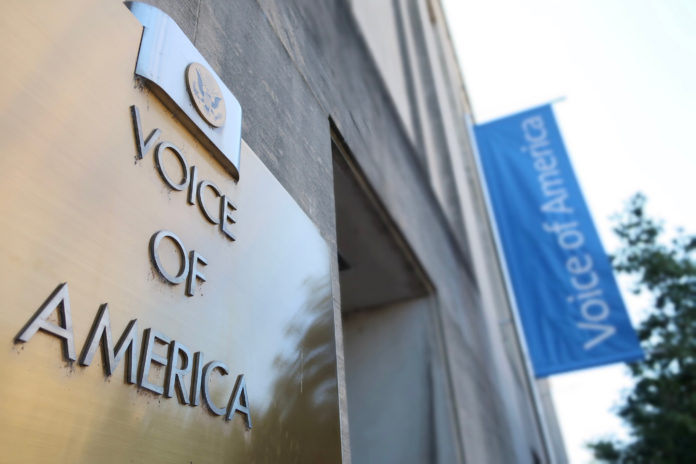The Afghan authorities have banned two U.S. government-funded radio outlets from broadcasting in the country – Voice of America (VOA) and Radio Free Europe/Radio Liberty (RFE/RL).
The Islamic Emirate’s Ministry of Information and Culture cited complaints they have received about programming content for the ban which was enforced on December 1.
Abdul Qahar Balkhi, the spokesman for the Ministry of Foreign Affairs, said that Afghanistan has press laws and any network found “repeatedly contravening” these laws will have their privilege of working in the country taken away.
“VOA and Azadi Radio (Radio Liberty) failed to adhere to these laws, were found as repeat offenders, failed to show professionalism and were therefore shut down,” he said.
Although VOA and RFE/RL are U.S. government-funded news organisations, they say they operate with “journalistic independence and aim to provide comprehensive, balanced coverage.”
VOA’s Afghan Service Chief Hasib Alikozai rejected the allegations about the programming and said the agency had not received any complaints about the content.
“These are made-up reasons for taking our stations off the air. The truth is that we were effective in our reporting of issues, which local media outlets could not cover because of their fears of retribution by the Taliban,” Alikozai said.
Subscribe to our newsletter and stay updated on the latest news and updates from around the Muslim world!
VOA’s Afghan services broadcast 12 hours a day on 15 FM channels and two medium wave (MW) channels, with programming split between Pashto and Dari. Their radio programs, first started in the 1980s, reach millions of listeners across Afghanistan.
Last week, the Ministry of Information and Culture called on media outlets to disseminate content that is factual and that contains issues of national interest.
In a meeting with media representatives, officials from the ministry, including the minister, Mullah Khairullah Khairkhah, said the media plays an important role in the development, progress, and preservation of Islamic and national values and also national unity.
“You (media outlets) should try to use your pen and language to benefit the people and not to cause misery and sedition between people,” said Khairkhah.
Mohajer Farahi, the deputy minister, said that the media can criticise the lack of work of the government in order to bring about reforms in the institutions, but that it must be based on Islamic principles and values. He also said the policy of the Islamic Emirate is not in any way in conflict with the media.
“The policy of the Islamic Emirate is that we do not want to clash with the media in any way, but we [want to] work together,” said Farahi.
And the spokesman of the IEA, Zabihullah Mujahid, pointed out that all government institutions are obliged to make information available to the media in a timely manner.
“As much as possible, the organisations should be obliged to make the information available to the media,” he added.
Mujahid also said that the mass media law is under review.



















